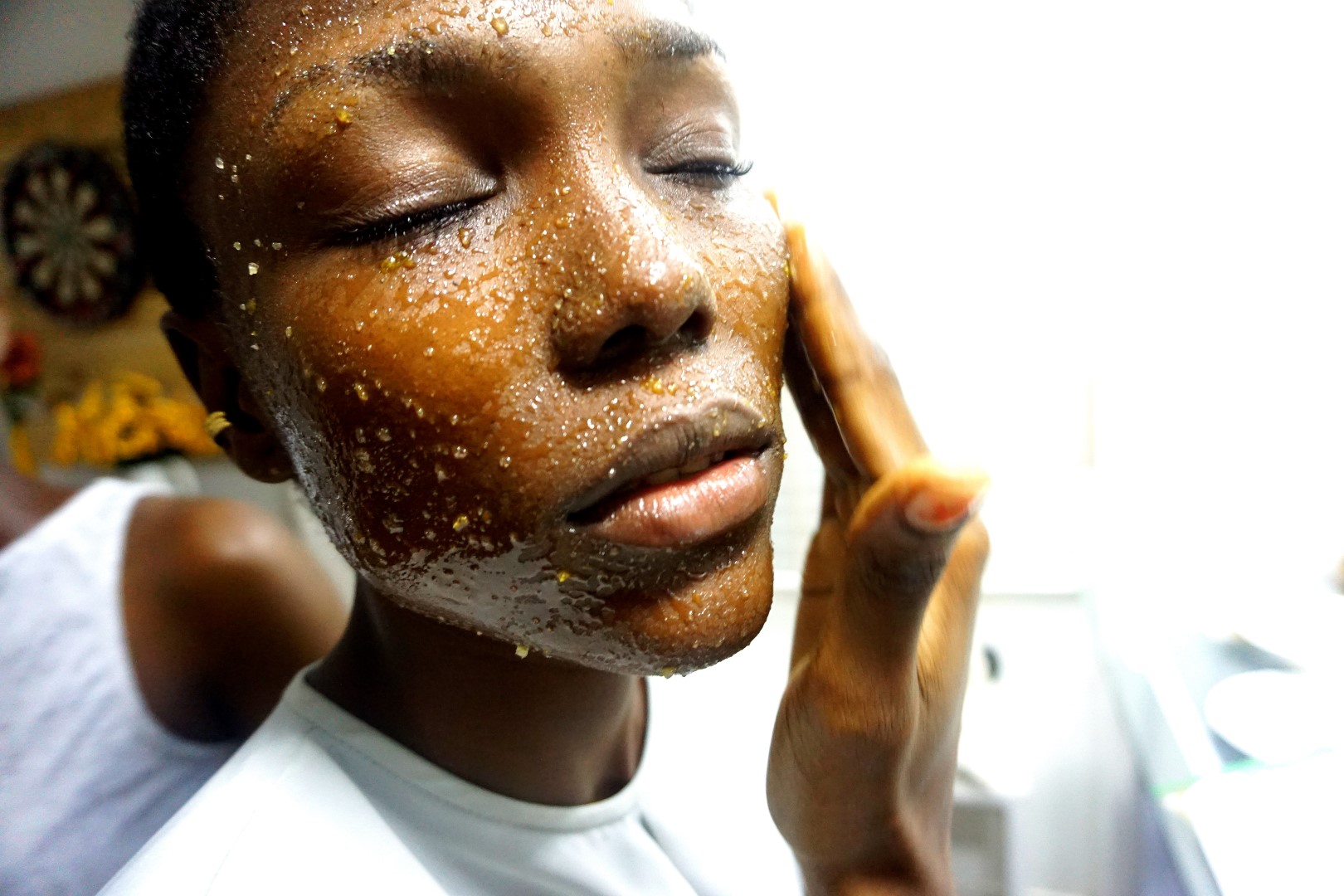Just like our individual needs and desires, our skin-types require a particular method of care when it comes to different products and usage of said products. Many of us are fond of using facial products that feature exfoliants, but have you been using them correctly?
PHOTO: LiveStrong
"Exfoliation addresses both irregular texture from erratic cell turnover, eliminates debris and dead skin cells, and creates a smoother skin surface for better penetration of actives, more effective hydration, and an easier makeup application… Skin cell turnover may become sluggish in the winter. With a boost from exfoliation, cells are kept vibrant."
Dermatologists Ava Shamban, MD and Melissa Levin, MD shared their exfoliating knowledge with Refinery29 to help make sense of it all. So here’s what we learned:
FOR DRY SKIN:
If you have dry skin, you should try to exfoliate one to three times a week. After doing so, to lock in moisture, follow up with a mask that specializes in hydration or a serum. Also, instead of looking for products with abrasive or acidic exfoliators, Dr. Shamban suggests “physical exfoliant created with an emollient base.”
"Oils are rich in essential acids, which moisturize skin and help to repair the outer barrier. They're superheroes for preventing moisture loss."
FOR OILY SKIN:
If you have oily skin and are using exfoliants to minimize skin, be careful with the products you are using because the ingredients could be irritating your skin.
"This can strip the skin of its essential natural oils, resulting in increased oil production, clogged and enlarged pores, and hyperpigmentation, which leads to uneven skin tone," Dr. Levin shared.
She suggests those with oily skin more-so look at acids than actual scrubs, and to aim for a moderate exfoliating schedule of two to three times a week.
"Salicylic acid is an oil-soluble ingredient that can break up dead skin cells and easily get to the root of many pore-clogging skin care concerns, such as the buildup of makeup, dirt, and environmental debris. It works by gently softening skin and dissolving impurities along the way."
FOR COMBINATION SKIN:
If you have combination skin, Dr. Levin suggests using the same exfoliating schedule as those with oily skin: alternating days, two to three times a week. Also, to help the turnover of dead skin cells, she recommends using products that have alpha-hydroxy acids.
FOR NORMAL SKIN:
If you have normal, balanced skin, to maintain a healthy turnover of cells, Dr. Levin suggests regular exfoliation two to three times a week. She also encourages the use of products with alpha-hydroxy acids to keep your skin balanced.
FOR ACNEIC SKIN:
If you have acneic skin, Dr. Shamban says exfoliation one to three times a week can assist with stubborn acne.
"If you live in a polluted city, you may need to exfoliate more frequently. The key here is to keep the skin, pores, and follicles clean without drying the skin, so the body isn't triggered to produce more sebum — something that causes more clogging and ultimately more acne."
With acneic skin, unless it’s sensitive, Dr. Shamban recommends products with physical abrasives and salicylic acids.
FOR SENSITIVE SKIN:
If you have sensitive skin, there are exfoliants that can work for you as well, however, Dr. Shamban only suggests you exfoliate once a week.
"The goal is cellular turnover and renewal, not inflammation and aggravation of the dermis, so gentle exfoliation with soothing and calming support is required. We want to engage a skin reaction, but not irritate the skin."
Enzymes help to regenerate, repair and protect your skin without creating irritation.
"Papaya enzymes delivered in a creamy, rich foam can soften, exfoliate, and gently release debris to promote healthy and natural skin turnover.”
FOR HYPERPIGMENTATION-PRONE SKIN:
If your skin is prone to hyperpigmentation, Dr. Levin says start off exfoliating twice a week and then increase as tolerated. Exfoliating helps to break up pigmented cells which cause dark spots.
"Glycolic acid is derived from sugarcane and is typically safe to use during pregnancy. It's not only anti-inflammatory and an antioxidant, but also decreases skin-cell adhesion, too."
Ready. Set. Boss. Our daily email is pouring out inspiration with the latest #BlackGirlBossUp moments, tips on hair, beauty and lifestyle to get you on track to a better you! Sign up today.
